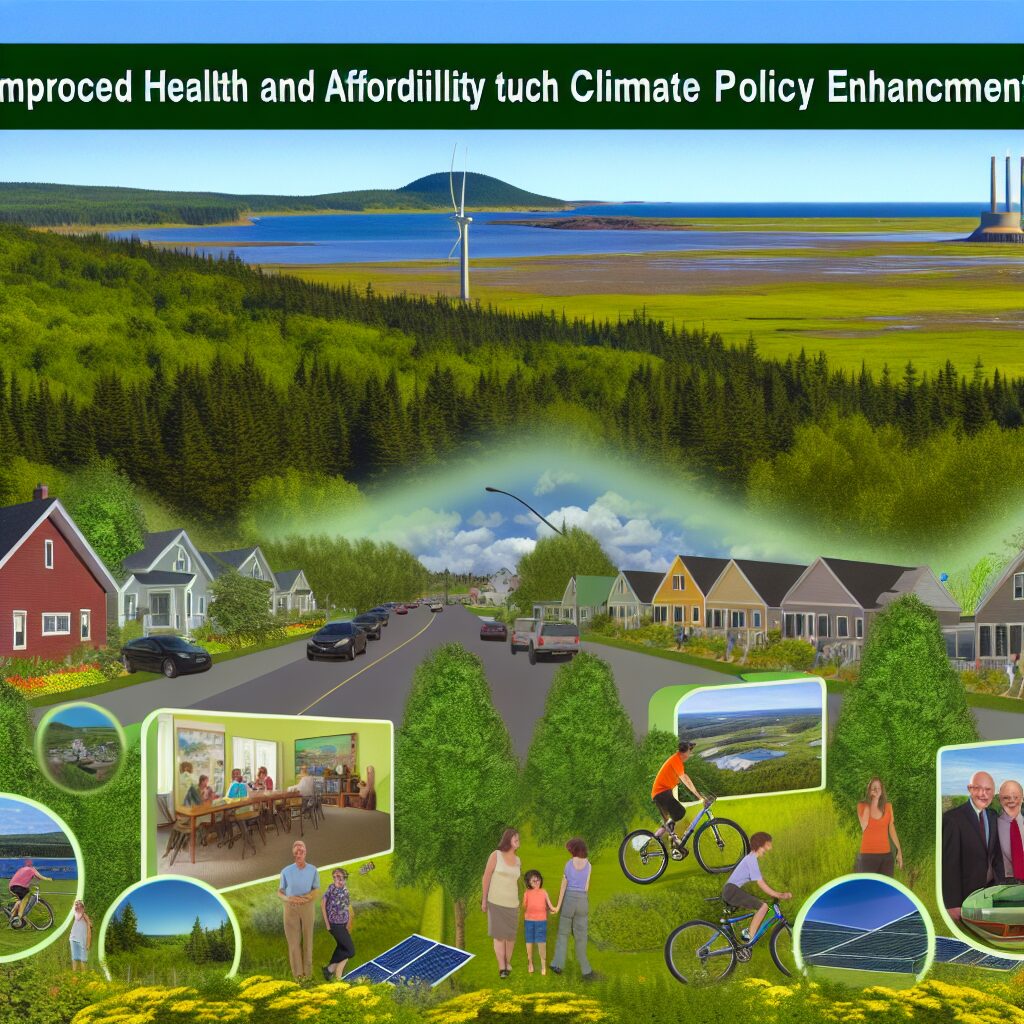Improved Health and Affordability in NB Through Climate Policy Enhancements
New Brunswick, a province known for its picturesque landscapes and vibrant communities, is at the forefront of an evolving discourse on climate policy enhancements. These discussions are not just about environmental sustainability but also about public health improvements and economic affordability. Stakeholders from various sectors are coming together to explore how strengthening climate policies can lead to healthier lifestyles and more manageable costs for residents.
The Intersection of Climate and Health
The link between climate policy and public health is becoming increasingly clear. Climate change impacts, such as extreme weather events and fluctuating temperatures, have direct and indirect effects on human health. Air quality degradation, rising allergens, and the spread of vector-borne diseases are among the pressing concerns. By enhancing climate policies, New Brunswick aims to address these challenges head-on.
Adopting stronger climate measures can lead to a reduction in greenhouse gas emissions, which in turn improves air quality. Cleaner air reduces respiratory problems and other health issues, thereby easing the burden on healthcare systems. Moreover, health professionals argue that preventative measures associated with robust climate policies can significantly decrease healthcare costs over time.
Economic Benefits of Sustainable Practices
Implementing enhanced climate policies isn’t just a victory for public health; it’s also a potential boon for local economies. As New Brunswick transitions towards greener practices, there is a growing emphasis on renewable energy sources, such as wind and solar power. This shift not only creates new jobs within the green energy sector but also leads to long-term savings for consumers.
Energy efficiency programs and incentives for adopting sustainable technologies can lead to significant reductions in household energy bills. For businesses, investing in eco-friendly infrastructure can result in operational cost savings and increased competitiveness. The ripple effect of these economic benefits strengthens local economies and makes living in New Brunswick more affordable.
Community Engagement and Education
A critical component of successful climate policy enhancement is community engagement. Raising awareness and educating citizens on the importance of sustainability and its impact on health and affordability is crucial. Public forums, workshops, and educational campaigns are being organized across the province to inform residents about the benefits of enhanced climate policies.
These initiatives aim to empower communities by providing them with the knowledge and tools needed to make informed decisions about their environment. By understanding the connection between climate policies and everyday life, individuals are more likely to support and participate in sustainability efforts.
Collaborative Efforts Towards a Greener Future
Collaboration plays a key role in advancing climate policy initiatives. Government bodies, non-profit organizations, and private sector leaders in New Brunswick are working together to craft policies that reflect shared goals. This collaboration ensures diverse perspectives are considered, leading to well-rounded and effective solutions.
Partnerships with academic institutions also facilitate research and innovation in climate science and technology. By leveraging insights from various fields, New Brunswick can implement cutting-edge strategies that address both current and future challenges posed by climate change.
Challenges and Opportunities Ahead
While the path towards improved health and affordability through climate policy enhancements is promising, it is not without challenges. Funding limitations, technological barriers, and differing political viewpoints can pose obstacles. However, these challenges also present opportunities for innovation and growth.
By focusing on scalable and adaptable solutions, New Brunswick can overcome these hurdles and serve as a model for other regions. Encouraging ongoing dialogue and maintaining transparency throughout the policy development process will be essential in navigating these complexities.
In conclusion, New Brunswick’s commitment to enhancing climate policies holds significant promise for improving public health and making life more affordable for its residents. With continued collaboration and community engagement, the province is well-positioned to lead in creating a sustainable and prosperous future.
Analyzed and outlined by ChatGPT-4o, images by DALL·E 3.
Source
https://www.cbc.ca/news/canada/new-brunswick/stronger-climate-policies-health-1.7341802

